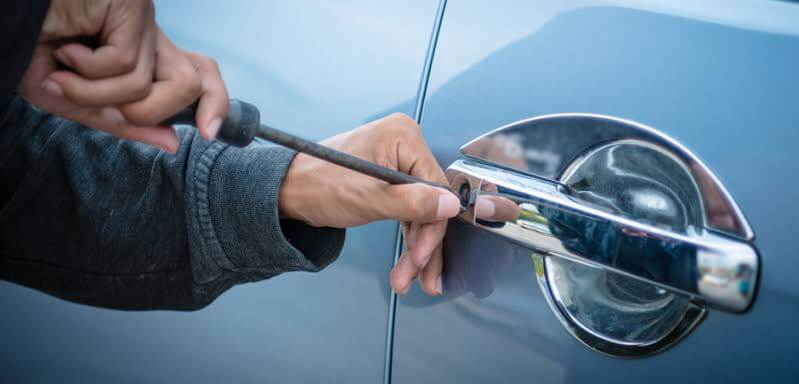Does Insurance cover stolen vehicles
When it comes to vehicle theft, many car owners wonder, “Does insurance cover stolen vehicles?”
If you’re concerned about car theft or want to understand how your auto insurance policy can protect you, this guide will walk you through everything you need to know.
From coverage options to filing a claim, we’ll explain how insurance can help in the unfortunate event of a stolen vehicle.
Understanding Auto Insurance Coverage for Stolen Vehicles
In general, auto insurance coverage for a stolen vehicle depends on the type of policy you have.
Standard car insurance policies include various coverage types, but not all will protect you against theft. Let’s break down the coverage options that apply to stolen vehicles.
1. Comprehensive Coverage
Comprehensive coverage is the main type of car insurance that covers theft. If your car is stolen, comprehensive insurance will typically pay for the actual cash value of your vehicle, minus your deductible. In addition to covering theft, comprehensive insurance also protects against non-collision incidents like vandalism, natural disasters, and animal damage.
- What Does Comprehensive Coverage Include?
- Theft of the entire vehicle.
- Damage to the vehicle caused by a break-in (such as a broken window or damaged lock).
- Stolen parts or accessories, like a stereo system or rims.
2. Gap Insurance
If you have a loan or lease on your car, gap insurance can be beneficial in cases of vehicle theft. If your car is stolen and not recovered, comprehensive coverage will pay the car’s market value, which may be less than the balance on your loan. Gap insurance covers the difference between what you owe on your vehicle and its actual cash value, ensuring that you’re not left with an outstanding loan.
- Why is Gap Insurance Important for Stolen Vehicles?
- New cars depreciate quickly, and without gap insurance, you could owe more on your loan than what the insurance company pays you.
- It provides additional financial protection, especially for leased vehicles.
3. Personal Belongings Coverage
While comprehensive insurance covers the vehicle itself, it doesn’t extend to personal belongings that may have been inside when the car was stolen. For instance, if you had a laptop, smartphone, or other valuables in the car, these items may not be covered under your auto insurance policy. However, you can often claim these losses under a homeowners or renters insurance policy, which usually covers personal property even when it’s outside your home.
What to Do if Your Car is Stolen
In the unfortunate event that your vehicle is stolen, taking immediate action is crucial. Here are the steps you should follow:
1. Report the Theft to the Police
As soon as you discover that your vehicle is missing, contact the police to file a report. They will need specific information about your car, such as:
- The make, model, and year of the car.
- The Vehicle Identification Number (VIN).
- Any distinguishing features, like bumper stickers or custom parts.
A police report is essential for filing an insurance claim, and without it, your claim could be delayed or denied.
2. Notify Your Insurance Company
After filing a police report, reach out to your insurance provider to report the theft. Be prepared to provide details, including:
- The date and location of the theft.
- The police report number.
- A list of any personal belongings that were in the car.
Your insurance company will guide you through the claims process and may provide a rental car if you have rental reimbursement coverage.
3. Stay Informed on the Status of Your Claim
Insurance claims for stolen vehicles can take time, especially if your car is not immediately recovered. Keep in contact with both the police and your insurance provider for updates.
If the vehicle is recovered, your insurance company will assess any damages and guide you on how to proceed with repairs or payouts.
How to Protect Yourself Against Vehicle Theft
Preventative measures can reduce the likelihood of your car being stolen. Here are some tips to help protect your vehicle:
- Always lock your car and close the windows.
- Avoid leaving valuables in plain sight.
- Park in well-lit, secure areas.
- Install an anti-theft device or tracking system.
- Use a steering wheel lock for added security.
Taking these precautions can reduce the risk of theft and may even qualify you for discounts on your comprehensive insurance.
Conclusion
So, does insurance cover stolen vehicles? The answer is yes, but only if you have comprehensive coverage.
Comprehensive insurance will protect you financially by covering the market value of your vehicle if it’s stolen, and gap insurance can cover any remaining loan balance.
Understanding your insurance policy and following the necessary steps in case of theft can help you minimize stress and financial loss.
If you’re concerned about car theft, check with your insurance provider to ensure you have the right coverage in place. By being proactive, you can safeguard your vehicle and have peace of mind knowing you’re covered.
